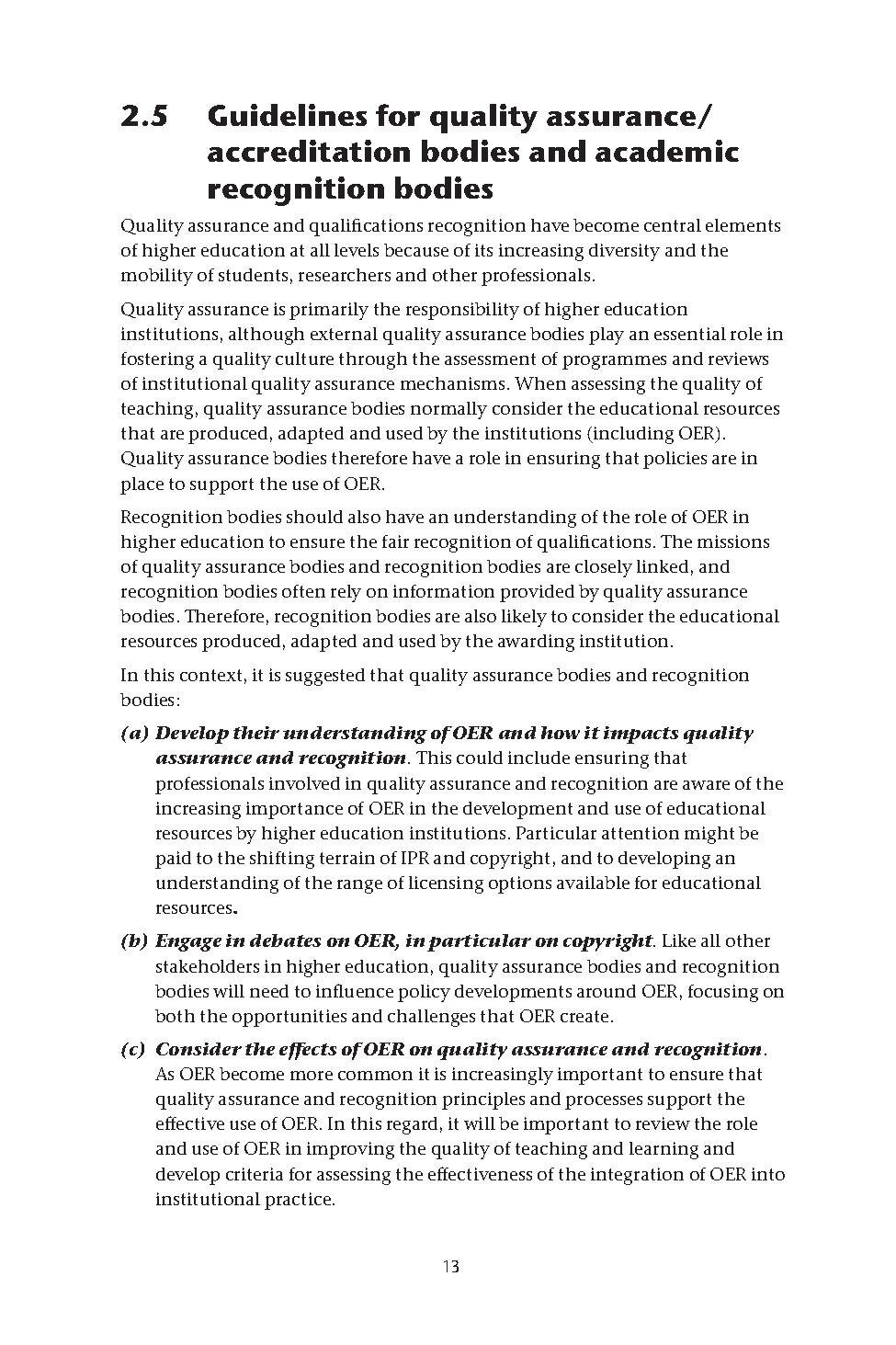2.5 Guidelines for quality assurance/accreditation bodies and academic recognition bodies
Quality assurance and qualifications recognition have become central elements of higher education at all levels because of its increasing diversity and the mobility of students, researchers and other professionals.
Quality assurance is primarily the responsibility of higher education institutions, although external quality assurance bodies play an essential role in fostering a quality culture through the assessment of programmes and reviews of institutional quality assurance mechanisms. When assessing the quality of teaching, quality assurance bodies normally consider the educational resources that are produced, adapted and used by the institutions (including OER).Quality assurance bodies therefore have a role in ensuring that policies are in place to support the use of OER.
Recognition bodies should also have an understanding of the role of OER in higher education to ensure the fair recognition of qualifications. The missions of quality assurance bodies and recognition bodies are closely linked, and recognition bodies often rely on information provided by quality assurance bodies. Therefore, recognition bodies are also likely to consider the educational resources produced, adapted and used by the awarding institution.
In this context, it is suggested that quality assurance bodies and recognition bodies:
- Develop their understanding of OER and how it impacts quality assurance and recognition. This could include ensuring that professionals involved in quality assurance and recognition are aware of the increasing importance of OER in the development and use of educational resources by higher education institutions. Particular attention might be paid to the shifting terrain of IPR and copyright, and to developing an understanding of the range of licensing options available for educational resources.
- Engage in debates on OER, in particular on copyright. Like all other stakeholders in higher education, quality assurance bodies and recognition bodies will need to influence policy developments around OER, focusing on both the opportunities and challenges that OER create.
- Consider the effects of OER on quality assurance and recognition. As OER become more common it is increasingly important to ensure that quality assurance and recognition principles and processes support the effective use of OER. In this regard, it will be important to review the role and use of OER in improving the quality of teaching and learning and develop criteria for assessing the effectiveness of the integration of OER into institutional practice.
13
